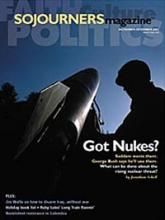The Lithuanians in Kaunas
had never seen a Japanese man
before he stepped off the train
that first day.
He was known only as
the new consulate
before his gentle face
and near-perfect Russian
earned him tipped hats in the street
and invitations to dinner.
The morning the Soviets came
the cobblestones cracked
and the sky trembled.
Almost immediately,
the Children of Abraham
lined up outside his door
squeezing the gates
like prison bars.
The cable from Tokyo said no
there were too many, and it wasn't
a good time.
He smiled at his wife and sons,
as he tore up the message
and pulled open the door.
The Nazis were coming
from the west, so the
Soviets wanted him out
in three weeks.
That wasn't much time,
so he worked twenty hours each day,
pausing only for tea
and for Yukiko to massage
his hand, circulate his blood.
He was still signing the morning he left.
An old cabalist stood in front of his car.
He rolled down the window
and signed the visa.
Later in the hotel,
the door banged all night.
He sat at a rented desk,
stamping the passports with a
smile, and a bow.
On the train platform,
more were waiting,
so he used luggage, books,
and people's backs
as hard surfaces.
He was still signing
as the train began to pull away.
He had to hand the last one back
through the moving window.
Like a childhood memory,
Kaunas grew smaller and smaller
in the distance.
Years later,
an American rabbi asked him
why he did it.
He thought for a moment,
then replied:
"I don't understand the question."
Read the Full Article
